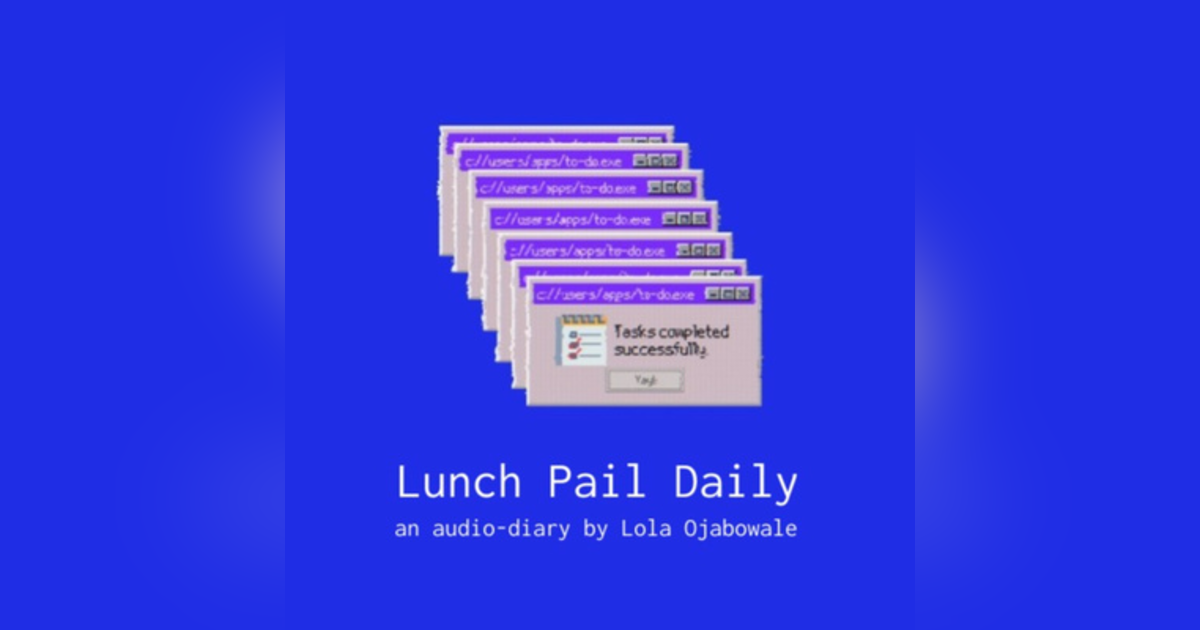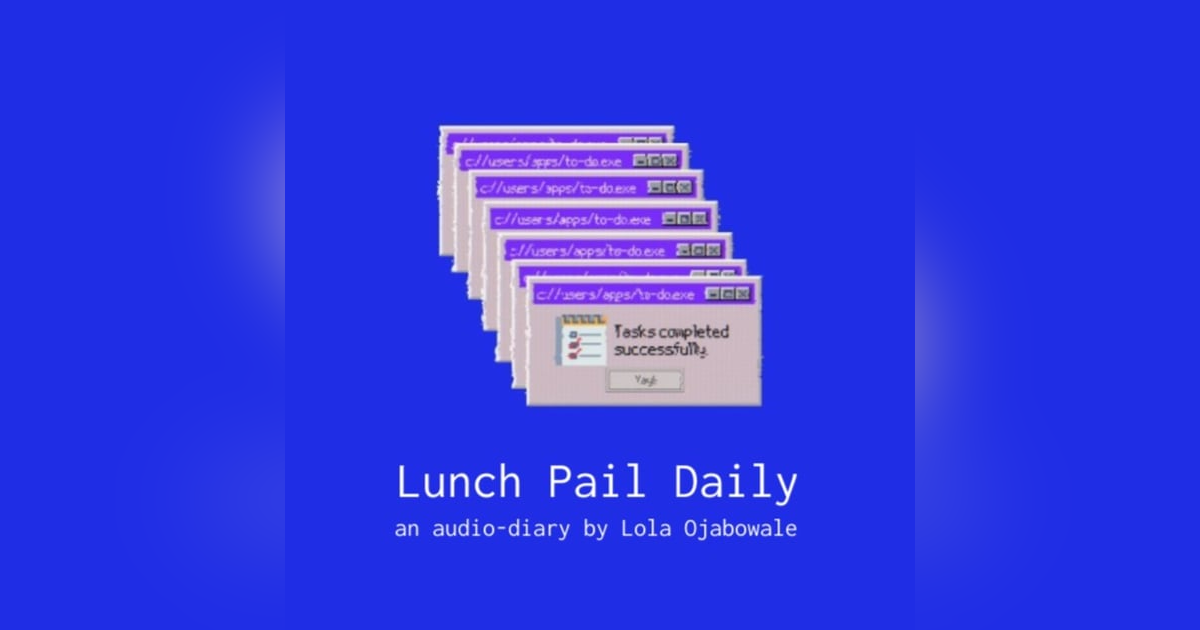#164 — 🥋 Deliberate Practice

I'm a big fan of Atomic habits and I credit a lot of how Lunch Pail Labs operates to the framing but I haven't been investing enough energy into deliberate practice which is also related. I explore what all that means, why it matters and what I'm trying to change moving forward in today's episode.
Resources mentioned in the podcast:
0:03
What's up everybody? This is Lola Ojabowale founder of Lunch Pail Labs. Welcome back to Lunch Pail Daily my personal audio diary where I share all of the realness on building and growing Lunch Pail Labs, which is a digital product studio based out of Atlanta, Georgia. In today's episode, we're going to jam about deliberate practice.
0:34
So first of all, deliberate practice. What are you talking about? Why does this matter? Well, this podcast is a podcast about growing Lunch Pail Labs. I've got my growth goals. I've got sort of a vision of where I'd like Lunch Pail Labs to be in the short term and the future term in the long term, and I've mentioned this in all of the weekly reviews, super fan of systems, not goals. My whole operating principle is I come up with my best hypothesis of what are the things I need to be doing daily weekly, monthly, in order to get Lunch Pail Labs to where I'd like it to be. And I deconstruct that into a list of habits and over time, reflect on one whether I'm adhering to those habits and to whether I think the habits that I have or the systems that I have are actually nicely contributing to where I'd like the company to go.
1:37
And I got a lot of this from James Clear's sort of like atomic habits. And one of the core sort of, sort of dualities or two sides of these habits is you sort of build the habit. You make space for the habit, you execute the habit. But there's also this piece, which I have definitely been neglecting of deliberate practice.
2:16
And a little more on, why this deliberate practice even matters is especially for the habits that are related to what you're trying to be very good at, not just like what you're trying to execute every day. There is a tension between something becoming a habit becoming more automatic becoming second nature and actually making that activity something that contributes to you being an expert, and looking at my roster of habits are certainly things that I'm totally fine being automatic. The two main places where I am actually trying to get good as possible process of building a product and committing any all of my habits around building products, communicating products, storytelling, you know, design, those sorts of things. That's where deliberate practice comes in because I'm actually trying to actively grow those skills. Beyond just like having it as a habit. So with that out of the way of why we're even talking about deliberate practice what that even means.
3:53
James clear describes this as there's kind of like two main cornerstones so for the deliberate practice, is you need a way to track and measure like your your practice your habit. For my like daily writing and daily product habits I don't really I track that I do them, but I haven't yet added a feedback mechanism or metrics. Yes, I do my daily write, but I only get credit, if it's all the daily writes are on this article that I end up publishing at the end of the week. Same with my product practice, like yep, I have my daily product, but it only counts. If all of the hat like when I sit down to do the habit. It's to like this x product that I've identified that I'm going to ship or build a new feature for.
5:26
And so I'll definitely go back to that instead of currently the processes like I just give myself credit for a I did any sort of build anything. I get credit I do any sort of like writing I get credit. So I think that shift is going to help with the tracking and measurement.
5:46
And then the next piece, really major piece is you need coaching, which most commonly that's going to mean someone else but in Farnham blog post on this topic of deliberate practice. They also mentioned metacognition, so you can actually self coach yourself through reflection thinking about your thinking, and I'm starting to incorporate more of that into my daily reflections like my personal daily reflections. Of some prompts around okay, like, how did we think like the writing exercises or the product pieces and all that stuff?
6:38
Also, there's some other resources in the show notes that I think were really helpful in as I was looking and learning more about this topic, Ness Labs on meta cognition, great article and sort of like self coaching. Farnum's blog on deliberate practice and then there's also a really good YouTube video by James clear on deliberate practice.
6:58
And I think across all of those resources, they have even a few other things that are helpful to consider with trying to build a deliberate practice things like rest and recovery, altering your practice to match your motivation. I thought that was a really nice insight from the video, the YouTube video that I just mentioned
7:27
James clear mentions that like, you know, progress, any progress is progress. And so if you're feeling like particularly unmotivated with a habit on that day, you can like lessen that habit. Maybe it's a five minute sprint instead of the usual one hour spring. I have found the times when I've forced myself to always do more and more like intense intensity and intensity, that's when I completely fall off. Instead of just saying like, Ah, I'm super, I'm just not really feeling it. I'm just gonna do the very low level version of this today.
8:25
And that's it on my deliberate practice. I'm thinking about incorporating that more in service of getting to where lunch pail Labs is trying to go. And yes, I will catch you all later.






